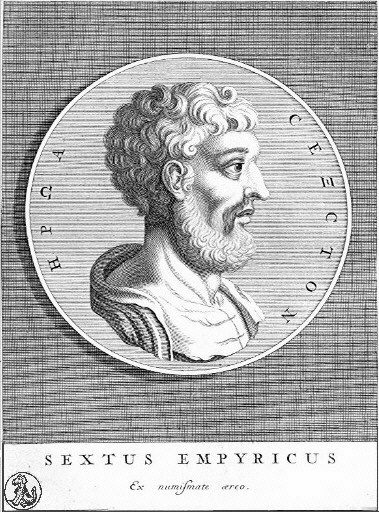
By Michael Ruse
*Reprinted from Atheism: What Everyone Needs to Know by Michael Ruse with permission from Oxford University Press USA. Copyright Oxford University Press 2015 and published by Oxford University Press USA. (www.oup.com/us). All rights reserved.
Did the Coming of Christianity Make Atheism Less or More Probable?
Christianity set the scene for the next two thousand years. It inherited the God of the Old Testament. By now, one is firmly in the world where one has moved from the one-among-many tribal god Yahweh to a single all-powerful creative deity: “Sovereign Lord, who made the heaven and the earth, the sea, and everything in them” (Acts 4: 24). This, monotheism, is the background against which the discussions are going to be framed, especially when the theologians started to draw on the Greek philosophers to articulate their notion of God. As we shall see, the influence of Plato (more precisely, Neo-Platonism) on Augustine (354–430), the most important of them all, was immeasurable (Brown 1967). Yet, the tradition of Jewish thought persisted. First, there was the total commitment to God as Creator God: “In the beginning when God created the heavens and the earth” (Genesis 1: 1). There is no nonsense about the universe being eternal or a designer god coming along and making a world out of preexisting material. First there was nothing. Then there was something. God was responsible.

The second break with Greek thought was in the emphasis on the way that God is, on occasion, prepared to intervene in his creation. He is not a Platonic Form, simply existing as a kind of model for this world of ours, or an Aristotelian Unmoved Mover, unaware of our existence and unable to partake in the doings of daily life. Above all, in the incarnation (the coming of God in a human form) and the subsequent atonement (our forgiveness through God’s suffering on the cross), we have a God of miracles. We have what is known as an immanent God. We have a providential God who is intimately concerned in our destiny. “Am I a God near by, says the Lord, and not a God far off? Who can hide in secret places so that I cannot see them? says the Lord. Do I not fill heaven and earth? says the Lord” (Jeremiah 23: 23–24).
In the early part of the new millennium, especially in Roman society, charges of atheism were rife, both by Christians and by critics of Christianity (Edwards 2013). The former thought that beliefs in the traditional gods were wrong and dangerous, and the latter thought that Christianity was both mistaken and a threat to the good order of the state. Note, therefore, that as before, atheism was never just a frame of mind, but something with strong social and moral connotations. But were there any real atheists? If there were, they were few and far between. However, there were some movements that were to have repercussions and influence in centuries far distant in the future. Above all, there were the Skeptics—folks who took agnosticism into all areas of inquiry, refusing to admit certain truths and thus suspending judgment. Particularly important was the school known as Pyrrhonism, the best-known exponent of which was the Roman philosopher Sextus Empiricus (160–210).

In respects echoing Carneades, he served up a series of devastating arguments focusing on the tensions between a God of the Jews who is actively involved in the affairs of the world and a God of the Greeks who was eternal and unchanging—a God, that is, that the great Christian philosophers and theologians were trying to forge out of the two traditions. Does God have a body or is he incorporeal? If the former, then he seems subject to decay and change. If the latter, then it is hard to see how he can act and have any effect: “the incorporeal is inanimate and insensitive and incapable of any action” (Sextus Empiricus 1953, 151). Along the same lines, suppose God is a person, that is, a creature or, not to put too fine a point on it, an animal. If so, then he is going to have animal-like features, including emotions. Hence, there are going to be things that vex him, like certain sights and sounds, and so in a sense he is liable to being worsened by them. He will be put in something less than a divine mood. And that seems incompatible with an unchanging God. Even more problematic are certain virtues. Take continence. This is the ability to show restraint. But not any kind of restraint. “For a man, they say, is continent not when he abstains from an old woman with one foot in the grave, but when he has the power of enjoying Lais or Phyrne [two notorious Greek courtesans famed for their beauty] or some such charmer and then abstains” (153). So even if God is continent, it means that he has to struggle and is open to change for the worse. “And if there are some things which are hard for God to abstain from and hard to endure, then there are some things which are able to change him for the worse and to cause him vexation” (157). Courage, too, implies that God has to be scared of something and that he overcomes his emotions.
Sextus was not an atheist. But he was certainly planting seeds that would germinate and fruit, if long after his time.
Michael Ruse is the Lucycle T. Werkmeister Professor and Director of the History and Philosophy of Science program at Florida State University. His work specializes in the philosophy of biology, the relationship between science and religion, the creation-evolution controversy and the demarcation problem within science.
